The wheels continue to fall off New Zealand’s economy, which is floundering in recession.
Late last month, Statistics New Zealand released the country’s national accounts, which showed that Q4 GDP unexpectedly fell, whereas earlier data was revised down heavily.
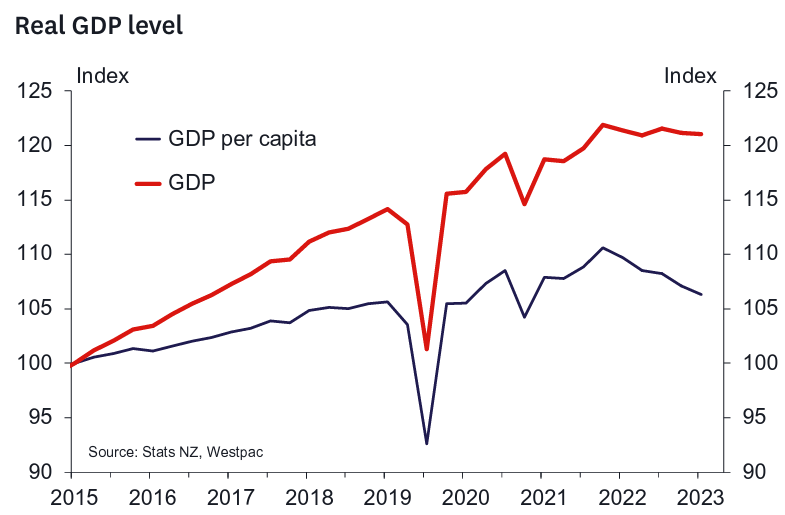
The next chart from Dr Cameron Murray at Fresh Economic Thinking tells the tale, with real per capita GDP and real per capita gross disposable income falling sharply over the five quarters to December 2023:
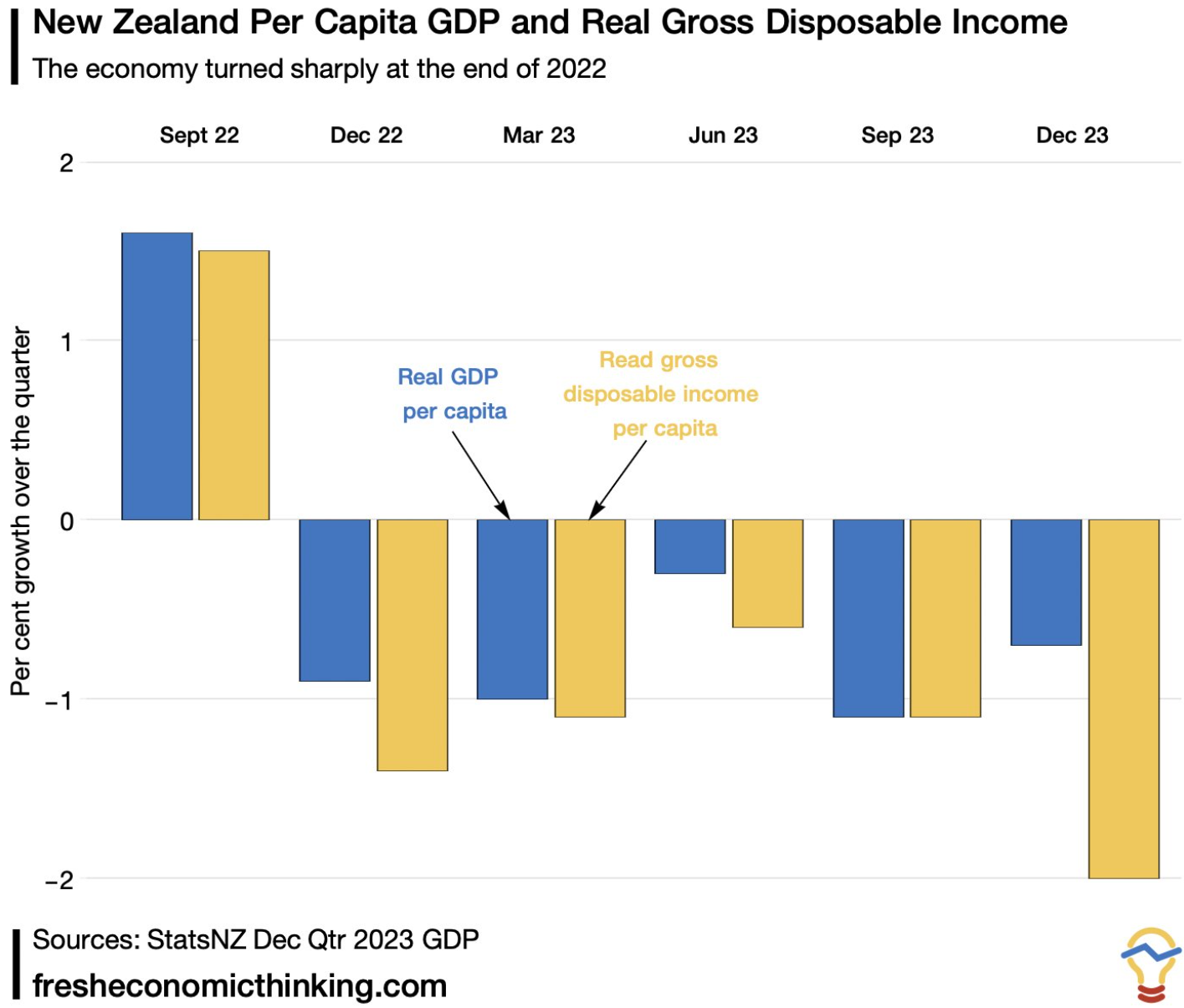
Meanwhile, New Zealand’s labour market is loosening fast, with the number of job ads reported on Seek falling below the pre-pandemic level and the number of applicants per job soaring to record highs, easily eclipsing the pandemic peak:
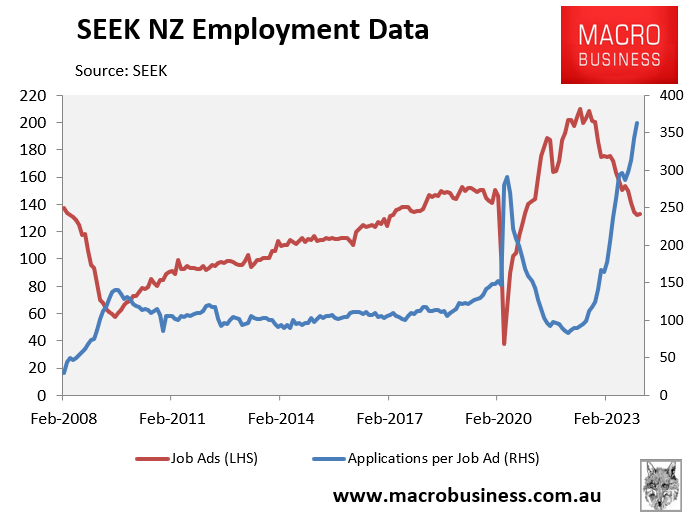
Reports of recession have now filtered into the consumer psyche, with the latest consumer confidence figures from ANZ-Roy Morgan showing that the election bounce enjoyed by new Prime Minister Chris Luxton has well and truly turned.
“ANZ-Roy Morgan consumer confidence fell 9 points in March to 86.4, with a fall across most questions, likely affected by recession headlines”.
“Late-month responses were markedly weaker than those that preceded the GDP data”…
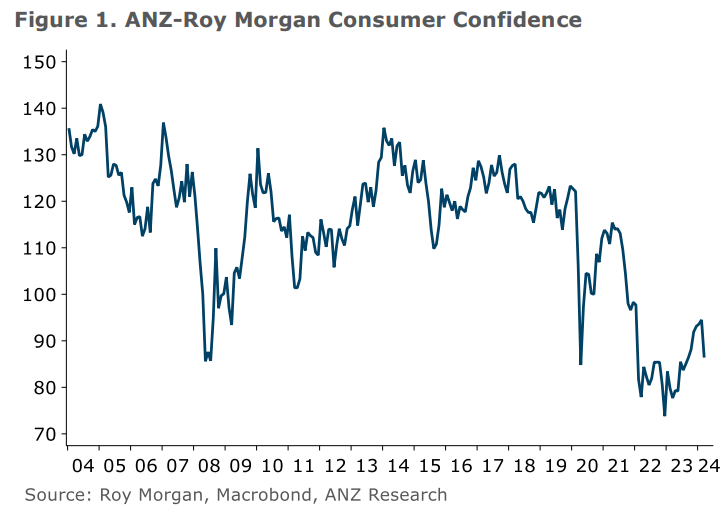
“News that the economy re-entered recession in the second half of last year appears to have hit consumer confidence hard (figure 1). Only around half of the week 4 survey responses will have come in after GDP data was released on 21 March, but the responses for that week overall were notably lower”.
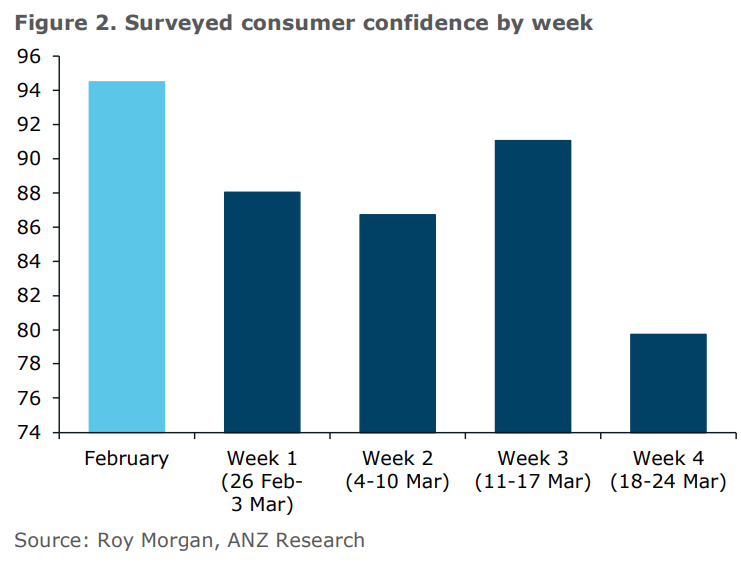
“That said, the preceding weeks were also softer than February, so the monthly fall in confidence isn’t just about recession headlines”.
“Indeed, while the GDP data has likely caused some volatility in surveyed confidence, in the bigger picture, the economy really struggled in the second half of last year, especially on a per capita basis, and the labour market is increasingly showing the impact of that”.
“And for the majority of people, the labour market is the business cycle: wage increases, job security, the ease of finding a new job – and all are heading south”.
It is hard to believe that in February, some bank economists were tipping that the Reserve Bank would hike interest rates further.
Given the economy’s obvious weakness, talk will surely shift to near-term rate cuts to stem the bleeding.

